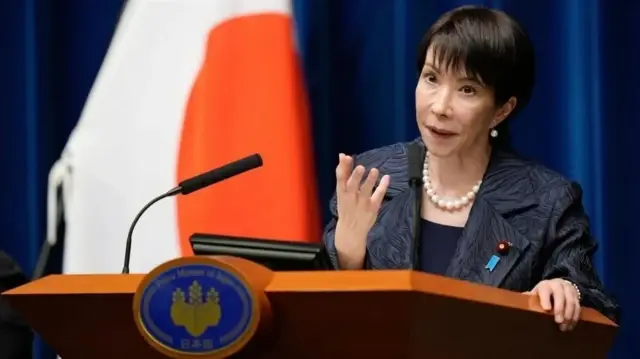Japan reiterates commitment to China ties as Taiwan dispute sharpens

Japan’s new Prime Minister Sanae Takaichi affirmed that Tokyo still seeks “mutually beneficial” relations with China despite rising friction over Taiwan. Beijing, however, urged Japan to correct recent statements it considers unacceptable and to fully respect bilateral commitments under long-standing political agreements between the two neighbors.
Japan and China exchanged new signals over the future of their relationship on Friday, as Tokyo attempted to ease tensions triggered by recent remarks on Taiwan. Prime Minister Sanae Takaichi, who took office only weeks ago, said Japan’s intention to maintain “mutually beneficial” cooperation with China had not changed, even as political disputes continue to escalate.
Beijing calls for adherence to political agreements
Commenting from Beijing, Chinese Foreign Ministry spokeswoman Mao Ning insisted that Japan should remain aligned with the four foundational political documents that frame China-Japan relations. She said Tokyo must “correct wrongful statements and actions” and show concrete commitment to the principles it previously endorsed. China views Taiwan as part of its territory and treats statements suggesting otherwise as interference in its internal affairs.
Tokyo’s security concerns over Taiwan
Takaichi’s position has drawn sharp reactions from China since she suggested earlier this month that a potential military operation against Taiwan could constitute a “survival-threatening situation” for Japan under its security legislation. Such a designation could allow Tokyo to activate its right to collective self-defense, a highly sensitive issue in the region. The comments, made shortly after her meeting with Chinese President Xi Jinping in South Korea, prompted strong diplomatic protests from Beijing.
Economic and social repercussions
The dispute has already produced immediate consequences. Following Takaichi’s Taiwan-related remarks, large numbers of Chinese tourists canceled their travel plans to Japan, a significant market for the country’s tourism sector. Tokyo also reported that China imposed new restrictions on seafood imports. In addition, Beijing postponed a trilateral culture ministers’ meeting with Japan and South Korea, a move criticized by Tokyo.
Calls for stability in bilateral relations
Despite the diplomatic friction, Takaichi reiterated that her government will continue evaluating security issues “based on specific and concrete circumstances” as they arise. She said the direction agreed with Xi—to keep the China-Japan relationship stable and cooperative—remains valid. Xi had previously urged her to protect the foundations of bilateral ties to prevent further deterioration at a time of heightened regional sensitivity.
Reklam yükleniyor...
Reklam yükleniyor...







Comments you share on our site are a valuable resource for other users. Please be respectful of different opinions and other users. Avoid using rude, aggressive, derogatory, or discriminatory language.